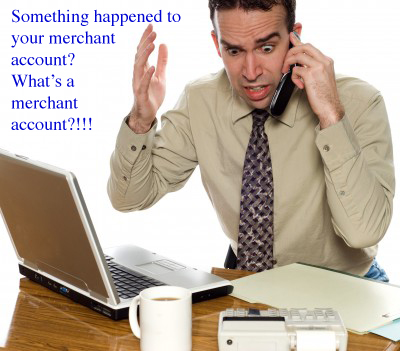Strategic Funding Source Mentioned in the Sun Herald
August 23, 2011
Merchant Cash Advance Provider, Strategic Funding Source, was mentioned yesterday in the Sun Herald. It was a short article that outlined the $4 Million deal with the Las Vegas Mob Experience at the Tropicana Hotel in Las Vegas, NV. This confirms our earlier March 3rd report.
“NEW YORK — As Las Vegas grew out of the desert sands, The Las Vegas Mob Experience overcame the harsh economy with the same tenacity that captures a lost era, chronicles Las Vegas’ early years and tells the stories of the real men behind the myths.“
Read full article in the Sun Herald
-The Merchant Cash Advance Resource
Get 25% Off Your Next Merchant Cash Advance – Funding Coupons?
August 23, 2011
Still get excited about the coupons tucked neatly into the Sunday newspaper? Savvy shoppers can still spot the special deals. 40% off Post Cereal Products, Buy One Pint of Breyers Ice Cream and Get One Free, and $25 off your next Merchant Cash Advance. Wait….what?
By sheer coincidence, we randomly stumbled across this on the internet:
Get $25 Cash Back Discount on Merchant Cash Group
Merchant Cash Group COUPON

This is as seen on iCouponBlog.com. We have witnessed special promotion offers in the industry before, but never in the form of an actual coupon.
Considering a Merchant Cash Advance is actually a sale of the merchant’s future receivables to the funding provider, one must wonder if Merchant Cash Group would be the one redeeming their own coupon to get an even steeper discount. They are in actuality the buyer in the transaction after all. Food for thought!
Some of you may know Merchant Cash Group as the Direct Funder in Gainesville, FL. Word has it that they are pretty good people. They have not contributed to this article, nor have we informed them of it. We will gladly share any comment they have on this. The same goes for all our readers.
As a special treat, we’re offering this, “Get 50% OFF on Your Next Article Comment!” Limited time offer. Special Restrictions May Apply.
– The Merchant Cash Advance Resource
Upfront Underwriting Fee Scams Still Persist
August 23, 2011
“Based on what you’ve shared, you qualify for a $50,000 loan, so now you just need to send in the application along with a check for $500 to pay for the underwriting.” SCAM!
Many Merchant Cash Advance(MCA) sales reps encounter business owners who have been so defeated by scams, that they are skeptical when something legitimate actually comes along. Some MCA providers may assess fees at the time a deal is funded, but at no point should a business be expected to make a payment prior to that. Think about it: If you are paying just for the opportunity to be considered for a loan, what financial incentive would the lender have to actually make loans? They can simply tell you that you have been declined and walk away with the fee.
The issue does not seem to persist in the MCA industry itself, but rather by con artists pretending to be traditional lenders. According to Dun & Bradstreet:
“Be especially wary of unsolicited phone calls, emails, or letters from prospective lenders making claims that sound too good to be true. If a prospective lender guarantees a loan without checking your credit or reviewing your business plan, proceed with caution. Also beware of lenders who cater to applicants with bad credit, pressure you to make a decision on the spot, and lenders who request payment by Western Union to foreign addresses.” Full article From D&B here.
We’re not looking to scare anyone, but you can never be too careful. Most of the MCA providers in our directory are listed with the Better Business Bureau. When in doubt, check them out!
-The Merchant Cash Advance Resource
What’s Going on in California?
August 23, 2011
The people have spoken! Many of our readers have sent e-mails wondering why we don’t have any coverage on the recent events in California. So here goes:
If you’re out of the loop, a nearly 3 year old lawsuit against one of the major Merchant Cash Advance (MCA) providers is coming to a close. Their name is not important, but it is a firm we revere still to this day. The story takes place in California, where a group of merchants in 2008 contested their Merchant Cash Advance was actually a loan, not a sale. In the other 49 states, MCA has been virtually undisputed for years but California law has shades of Gray.
 There is one cardinal rule for making a loan in California and that’s to be licensed to do so. The case struck at the heart of what MCA is all about, a sale of future card payment receivables for a discounted price today. So why would a buyer of future cash flows need a lending license? The answer is not a short one and it was a heated debate that spanned 3 years.
There is one cardinal rule for making a loan in California and that’s to be licensed to do so. The case struck at the heart of what MCA is all about, a sale of future card payment receivables for a discounted price today. So why would a buyer of future cash flows need a lending license? The answer is not a short one and it was a heated debate that spanned 3 years.
It comes as no surprise that the end result was a stalemate. Both sides exhausted their time and energy until they called it quits with a settlement. Over $4 Million dollars will be paid to the legal team representing the plaintiffs. That’s big bucks for a group that was unable to prove over the course of 3 years the need for a lending license to conduct a sale.
While the affected merchants, attorneys, and the MCA provider are eager to move on, a particular California law firm seems to have grabbed the baton. As of early March 2011, at least 3 other MCA providers are now facing the same situation. We’ve seen the court filings and it’s essentially the same challenge and question of licensed lending.
However, when considering the absolute unlikelihood that these independent lawsuits would have come together at the same time without extreme goading by their class representation attorneys, we are highly suspicious of the motives behind them. The timing implies that merchants funded by MCA provider A, MCA provider B, and MCA provider C all approached the same law firm at the same time with the same problem. This may have been possible if each provider structured a deal in the exact same manner. Rather, each provider used different contract language and there is no commonality between them outside of the tendency to all describe their product as a “Merchant Cash Advance”.
We are therefore inclined to believe this law firm is taking the “throw shit at the wall and hope something sticks” approach. Keen to the $4 Million windfall to be reaped in the case described above, it is reasonable to believe these attorneys went searching for customers of all MCA providers and invited them to be plaintiffs in their frivolous suits. There’s no precedence that they’ll win, but there is for a settlement, and a settlement could mean millions of dollars in representation fees.
Some of The Merchant Cash Advance Resource’s top connections can attest that this particular law firm spent a substantial amount of time surfing the net for all MCA providers in California. Using their web traffic analytics and tracing the activity to their domain name, it certainly appears they’re going shopping for “victims.” If we are right, expect more lawsuits from them in the next few months.
To add insult to injury, these events coincide with tough economic times. MCAs are widely celebrated as the easiest, most flexible financial option available to small businesses today. Over half a billion dollars was funded in 2010 alone. With the Federal Government struggling to do the same, it is troubling that a few slick lawyers are seeking to take the lifeline away.
Treasury offers funds to spur business lending
The SBA is in shambles, the unemployment rate is extraordinary, and banks are unwilling to lend. That’s not a great combination for America’s small business owner. Fortunately MCA providers have filled the gap. If steps are taken to discourage them from operating in California, millions of dollars will disappear from the state’s economy. That means less jobs, less sales, and less growth. And if that day should come, don’t point the finger at the Governor, The Federal Reserve, Obama, or the banks. You’ll be able to thank a few lawyers that robbed Californians for their own personal gain. The truth hurts.
– The Merchant Cash Advance Resource
1st Quarter 2011 Merchant Cash Advance Industry Preview
August 23, 2011Posted on April 3, 2011 at 7:52 PM
As a continuation of the massive popularity of our 2010 full year Merchant Cash Advance funding statistics, we are putting together data for the 1st quarter of 2011. It has not yet been finished but we figured we’d share some of our early findings.
early findings.
Funding appears to be on the rise in almost every state
This is mainly due to increased output by AdvanceMe. They are literally pushing the industry’s figures forward and making up for some firms that have cooled off. First Funds’ (Principis Capital) figures have declined by a large degree and is not operating close to 2010 levels.
Surge in “Starter Advances”
1st Merchant Funding, the most well known provider of starter advances is making significant gains. This may be an indication of tighter underwriting for normal size advances, there being more applicants with terrible credit, or the result of business owners embracing the opportunity to start off small.
California
Funding volume in this state has fallen off a cliff. Our initial estimates show declines of somewhere between 20-50%. This most likely has to do with What’s Going on in California. Normally the most active State for Merchant Cash Advance (was 13% of the entire nation in 2010), a continuation or worsening of this trend will actually shrink the industry as a whole in 2011. Of course the evidence of growth in the remaining 49 states tells the real story of the financial product’s success.
Stay tuned for the statistics…
– The Merchant Cash Advance Resource
Merchant Cash Advance Statistics for First Quarter of 2011
August 23, 2011
The results are in! The Merchant Cash Advance Resource has researched and released funding statistics for the 1st quarter of 2011. Here’s what we found:
- Funding in California is on pace to drop by a whopping 45% in 2011.
- Funding is on pace to increase in the remaining states by about 2.5%.
- The quantity of transactions is on pace to match 2010’s levels.
- There are more small independent funding providers but the bulk of transactions are done by a few major veteran firms
- An average deal funding size of $25,000 may not be appropriate. Most of the largest providers have ramped up “starter advance” operations, which normally involve transactions that range from $1,000 to $10,000. Therefore the average deal size is being averaged down and this will probably cause overal funding output in 2011 to be lower than 2010.
Take a look:
Merchant Cash Advance Statistics for First Quarter of 2011
– The Merchant Cash Advance Resource
How to Start a Merchant Cash Advance Company
August 23, 2011Originally published: 4/11/2011
One of our readers e-mailed us this question:
I would like to open a MCA company. What do I need and where do I apply ? Do I need permit, license or what? Where can I get the help and info?
– From: J.H.
=============
J.H.,
Are you looking to be the actual funding provider or a broker?
If you’re looking to be the provider, you should spend some time brokering the deals first. You need to get your feet wet and get the hang of what the business is all about. You will not the have the security that a bank has, such as collateral or a fixed payment schedule.
A summary of basic terminology and processes: https://debanked.com/apps/wiki/merchant-cash-advance-wiki
Here’s what other companies require and analyze: https://debanked.com/application%20process.pdf

You need to ensure that your contracts, agreements, applications, and marketing materials are consistent with the transaction being a purchase of future sales, not a loan.
Additionally, you don’t need to start a funding company from scratch. There are Merchant Cash Advance funding networks such as Colonial Funding Network that can provide everything you need, including systems, underwriting, and even a portion of the capital itself. You make the deal, they service the account.
We hope that helps.
– The Merchant Cash Advance Resource
Not an Expert in Payment Processing? Then Don’t Fund Merchant Cash Advances
August 23, 2011
If you have no experience in underwriting payment processing accounts, don’t bother becoming a Merchant Cash Advance (MCA) provider.
After a quick underwriting process, a MCA provider  purchases Business ABC’s future card sales. Business ABC receives a lump sum of capital and a percentage of each card sale is now directed back to the MCA provider. Two weeks later, Business ABC loses a $2,000 payment dispute with a customer and suffers a chargeback. Unwilling to bear any additional risk, the payment processor terminates Business ABC’s account. Business ABC can no longer accept card payments. What does the MCA provider do?
purchases Business ABC’s future card sales. Business ABC receives a lump sum of capital and a percentage of each card sale is now directed back to the MCA provider. Two weeks later, Business ABC loses a $2,000 payment dispute with a customer and suffers a chargeback. Unwilling to bear any additional risk, the payment processor terminates Business ABC’s account. Business ABC can no longer accept card payments. What does the MCA provider do?
Why did we hypothesize this scenario? Because this situation happens. The underwriting of a MCA doesn’t start with a credit score and end with a cash flow examination. The focus should be on the merchant’s future card payments. If the merchant’s ability to accept payments is at risk, then all the other factors aren’t worth diddly. You can have a client with 800 credit, processing consistent volume, have $50,000 in the bank at all times, and it just won’t matter. So what can go wrong? Your client’s funds can be frozen or their account closed in any of the following situations:
- The merchant processes a sale that is outside their approved parameters. For example: A restaurant has a $50 average ticket with a maximum allowable sale of $300. During the holidays they book a catering gig and attempt to swipe a $3,500 sale. BAD NEWS.
- The merchant is set up to swipe 95% of all card transactions but lately has been key-entering the card numbers nearly 70% of the time. BAD NEWS.
- The merchant you funded owns a retail store. His brother has a landscaping business. Occassionally the landscaping business will swipe cards through the retail store’s credit card machine and the brother will pay him the proceeds. If a business accepts payments on behalf of another business…. then BAD NEWS.
- The merchant has too many customers disputing charges. BAD NEWS.
- The merchant has insufficient funds in the bank account to cover the month end fees to the payment processor. BAD NEWS.
- The merchant processes payment far in advance of the services being rendered. BAD NEWS.
- The merchant’s average sale size is in excess of $1,000. BAD NEWS.
- The merchant swipes their own credit card through the terminal, effectively giving themselves a cash advance. This is illegal. BAD NEWS.
- The merchant has no refund policy. BAD NEWS.
- The merchant is processing with non-pci compliant equipment. BAD NEWS.
- The merchant changes their business ownership structure or legal entity type. BAD NEWS.
- The merchant takes payment for a prohibited item or service. BAD NEWS.
- The merchant has a security breach. BAD NEWS.
- The merchant violates any policy of their payment processor or payment network. BAD NEWS.
These are just a few situations that MCA providers need to be prepared for. One day everything is perfect and the next day their client’s ability to accept card payments is suspended or terminated. Historical statements can provide clues but anything can happen. A merchant with no chargeback history can have their account jeopardized with just one chargeback.
Alternative methods of collection such as direct debit and lockbox will be futile since they still depend on proceeds of payment processing. Simply speaking, if there are no more card sales, then you cannot recoup what you have purchased. And that’s the end of it.
It’s a risky business. MCA providers place an unbelievable amount of faith in their clients’ continuing ability to accept card payments. Rookies often comment that MCA providers are in a much better position to collect funds than a bank is on outstanding loans. This is outright false. A bank is entitled to payment no matter what happens to the business. Failure to pay a loan results in the reposession of collateral.
We have witnessed hundreds of MCA deals go south due to unforeseen payment processing issues. Being a funding provider may look attractive on paper, but if you think looking at the average sales volume, credit score, and cash flow history will get the job done, you’ll get smoked in this business. There’s a reason our site has two sections, Merchant Processing and Merchant Cash Advance. They go together. Don’t learn the hard way.
– The Merchant Cash Advance Resource






























